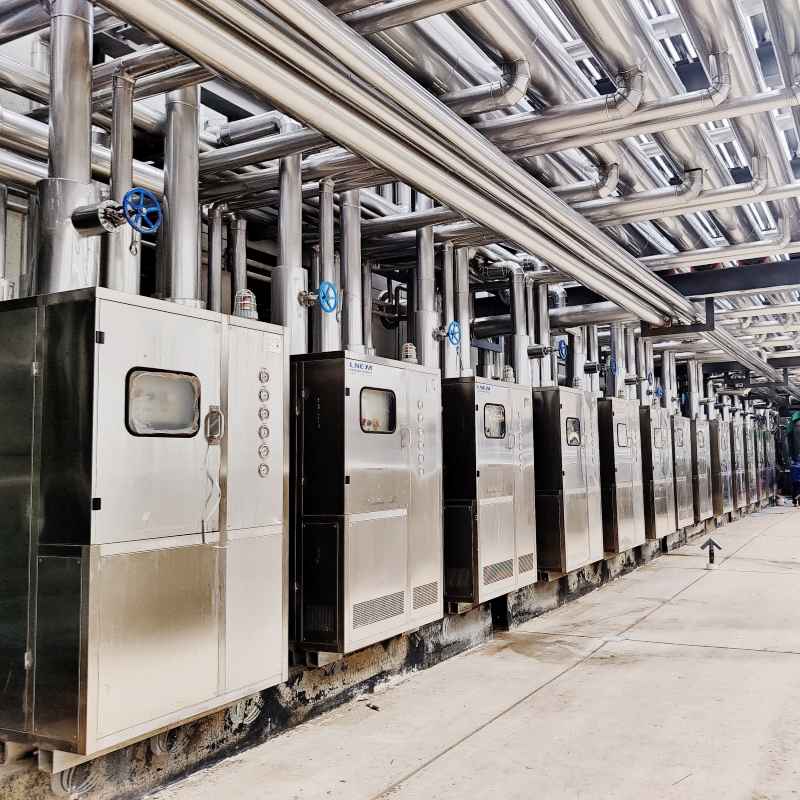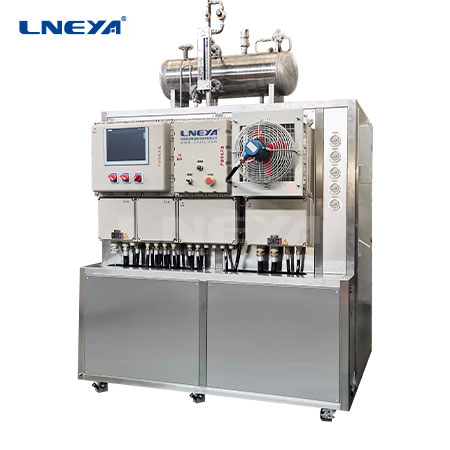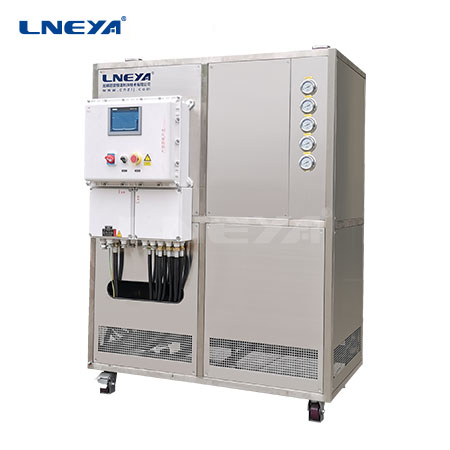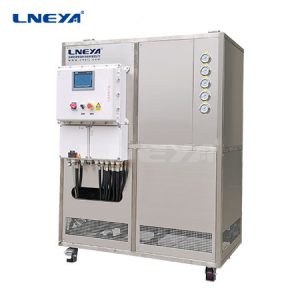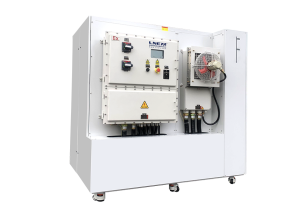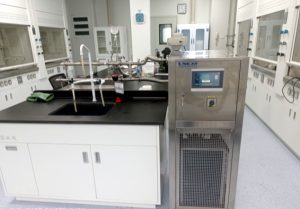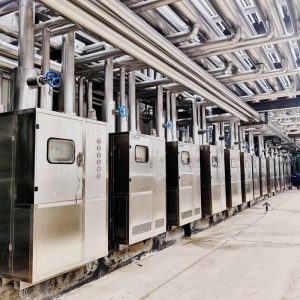500L reactor distributed temperature control unit system
The 500L reactor is a relatively large-capacity reaction vessel in industrial manufacturing and pharmaceutical companies. It is usually used in pilot-scale or small- and medium-scale production stages, and widely serves multiple industries such as chemicals, pharmaceuticals, fine chemicals, new materials, food, and cosmetics. It is used for organic synthesis, polymerization, resin synthesis, and coating preparation. In drug synthesis, API preparation, and intermediate production, chemical reactions, crystallization, extraction, and other processes are carried out, and it is a key equipment for the development of new drugs and production process optimization. In emerging fields such as nanomaterials, polymer materials, and battery materials, it is used for the synthesis and modification of materials, such as the development of lithium-ion battery electrolytes and polymer composite materials.
Large reactor workshops require a distributed control system (DCS) for temperature control units mainly to achieve the following key goals to ensure production efficiency, safety and product quality:
Accurate temperature control: Chemical reactions in reactors are extremely sensitive to temperature, and accurate temperature control is the key to ensuring the smooth progress of reactions and product quality. The temperature control unit distributed system can implement independent and precise temperature control for each reactor, ensure stable reaction conditions, reduce batch differences, and improve product quality.
Efficient management: Large workshops often have multiple reactors running at the same time, and each reactor may have different temperature control requirements. The distributed system can centrally monitor and manage the temperature control units of all reactors, simplify operations, improve management efficiency, and reduce manual intervention errors.
Automated control: The DCS system provides automatic adjustment function, which can automatically adjust the heating or cooling output according to the preset process parameters and actual measurement feedback, achieve rapid temperature response and precise adjustment, and improve production efficiency and repeatability of reactions.
Safety monitoring: Reactor operation involves dangerous conditions such as high temperature and high pressure. The distributed system can monitor the working status of each reactor in real time, including key parameters such as temperature and pressure. Once it deviates from the safe range, it will immediately trigger an alarm or take automatic safety measures to reduce the risk of accidents.
Energy management: By optimizing the heating and cooling process, the distributed system can effectively manage energy use, reduce unnecessary energy consumption, reduce production costs, and also benefit environmental protection.
Data recording and analysis: The DCS system can record all data during the reaction process, provide detailed data support for process optimization, fault analysis, and quality traceability, and help companies continuously improve the production process.
Reactor Temperature Control Unit
- MORE
TCS Series
TCS integrated Reactor temperature control system First, advanced design conceptThis solution is based on the advanced process control system SIMATIC PCS 7 design. It refers to the advanced concept of real-time release testing in…
- MORE
SR Series
TCU temperature control system USES the existing heat (such as steam, cooling water and cryogenic liquid – the “primary”) system infrastructure are integrated into the single fluid system was used to control the temperature o…
- MORE
ZLF Series
Special temperature control system for reaction kettle -120~250℃ 士1°C TCU temperature control system USES the existing heat (such as steam, cooling water and cryogenic liquid – the “primary”) system infr…
loading…
已经是到最后一篇内容了!
Related recommendations
-
ZLF Series
3403Special temperature control system for reaction kettle -120~250℃ 士1°C TCU temperature control system USES the existing heat (such as steam, cooling water and cryogenic liquid - the "primary") system infr...
View details -
SR & ZLF series TCU Reactor Cooling Heating Temperature Control System
138APPLICATIONS TCU temperature control system uses existing thermal energy (such as steam, cooling water and ultra-low temperature liquid - the "primary system") infrastructure to integrate into a single fluid system or secondary loop use...
View details -
10L reactor temperature control equipment
133610L reactor temperature control equipment, also known as oil bath machine, is a device used to accurately control the temperature in the reactor, usually through heat transfer oil (also known as heat transfer fluid) to achieve heating an...
View details -
TCS Series
2067TCS integrated Reactor temperature control system First, advanced design conceptThis solution is based on the advanced process control system SIMATIC PCS 7 design. It refers to the advanced concept of real-time release testing in...
View details
 LNEYA Industrial Chillers Manufacturer Supplier
LNEYA Industrial Chillers Manufacturer Supplier









